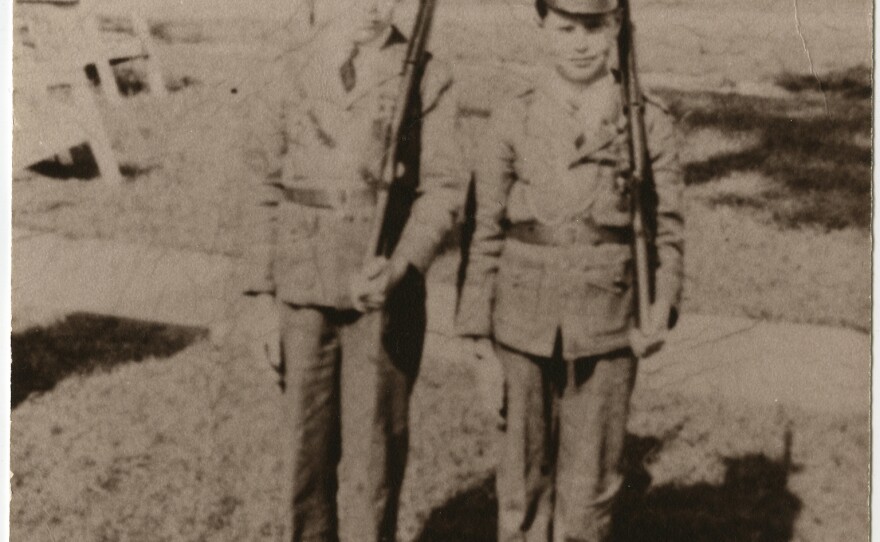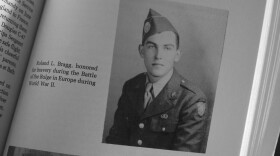Billy Herring was seven years old when his family moved on to Fort Bragg in 1939, one of only three civilian families on post at the time. His father ran the dairy farm, supplying milk to the soldiers.Herring remembers watching each morning as the 4th Field Artillery Battalion marched a long line of mules carrying artillery to the training grounds. Pack mules were vital for moving heavy equipment in the days before mechanization.

"The mules were living in brick stables," said Herring, now 85. "The men were living in tents, which were pitched besides our house. I was told that if they neglected the animal and it got sick or disabled for any reason that was the man's fault, then he would have to take the saddle the next day and carry it on his back. "
Everyone pitched in for the war effort during WWII, Herring recalled. His Boy Scout Troop dug up slugs from the firing ranges for scrap metal, while his mother saved bacon grease for use in explosives. Herring himself collected 1,000 pounds of waste paper, enough to merit a medal emblazoned with Gen. Eisenhower's face.
Towards the end of the war, high-ranking German prisoners of war were jailed a few blocks from his home. Once, when a prisoner escaped, soldiers searched under the Herring's house. The prisoner wasn't found that night, but Herring wasn't worried about his family's safety.
"I felt pretty good, because if you're not secure on an Army base, where are you secure?"
Ft. Bragg Stories is a collaboration between the Fayetteville Observer and WUNC's American Homefront Project to commemorate a century of history at Fort Bragg through personal narratives. You can hear other stories in the series here. If you'd like to share your Fort Bragg story, you can send it here, or email fortbraggstories@wunc.org














